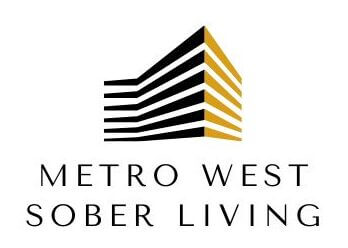Structured Sober Living
Benefits of Structured Sober Living
Structured sober living has been shown to provide numerous benefits for individuals in recovery from addiction. By offering a supportive, structured environment, individuals are able to focus on their recovery and build the skills necessary for a successful, sober life. In this post, the benefits will be discussed highlighting the positive outcomes that can be achieved. Having a successful aftercare plan in place such as sober living is crucial in regards to maintaining long term sobriety.

1. Accountability & Support
One of the primary benefits of sober living is the accountability and support that is provided to residents. In a structured environment, individuals are held accountable for their actions. Also provided with support and guidance from staff and peers. This accountability and support can be invaluable for individuals in recovery, as it helps them stay focused on their sobriety and provides them with a sense of community.
2. Improved Mental and Physical Health
Structured sober living also offers benefits for both mental and physical health. By providing a stable, structured environment, individuals are able to focus on their physical health, including nutrition and exercise. Additionally, by reducing stress and anxiety, individuals are better able to manage their mental health and avoid relapse triggers.
3. Development of Life Skills
Another benefit of sober living is the opportunity for individuals to develop important life skills. By living in a structured environment, individuals are able to learn and practice skills. Skills such as time management, budgeting, and communication. These skills can be crucial for success in both recovery and in life outside of the sober living environment.
4. Improved Relationships
Structured sober living also provides an opportunity for individuals to improve their relationships. By living in a community of individuals who are also in recovery, residents are able to build supportive relationships and learn healthy communication and conflict resolution skills. This can be especially important for individuals who have struggled with addiction, as addiction can often strain relationships and lead to isolation.
5. Increased Motivation
Another benefit of structured sober living is the increased motivation that individuals often experience. By living in an environment that is focused on recovery, individuals are able to stay motivated and committed to their sobriety. Additionally, the support and accountability provided by staff and peers can be a source of motivation. Especially for individuals who may have struggled to stay committed to their recovery in the past.
6. Reduced Risk of Relapse
Perhaps one of the most important benefits of structured sober living is the reduced risk of relapse. By living in a structured environment, individuals are able to focus on their recovery and avoid triggers that may have led to relapse in the past. The support and accountability provided by staff and peers can help individuals stay committed to their sobriety and avoid the temptation to use drugs or alcohol.
7. Transitioning to Independent Living
Structured sober living can also provide individuals with a smoother transition to independent living. By learning important life skills and developing a strong support system, individuals are better prepared for life outside of the sober living environment. This can be especially important for individuals who may have struggled with addiction for a long period of time, as they may need extra support and guidance as they transition back to independent living.
8. Opportunities for Personal Growth
Finally, structured sober living can provide opportunities for personal growth. By living in a community of individuals who are also in recovery, residents are able to support and learn from each other. This can lead to personal growth and development. Individuals are exposed to new ideas and perspectives. Additionally, the structured environment can provide individuals with the time and space to reflect on their past and plan for their future.
In conclusion, structured sober living can provide numerous benefits for individuals in recovery from addiction. From accountability and support, to improved mental and physical health, the benefits of structured sober living are numerous. By living in a structured environment, individuals are able to focus on their recovery and build the skills necessary.
